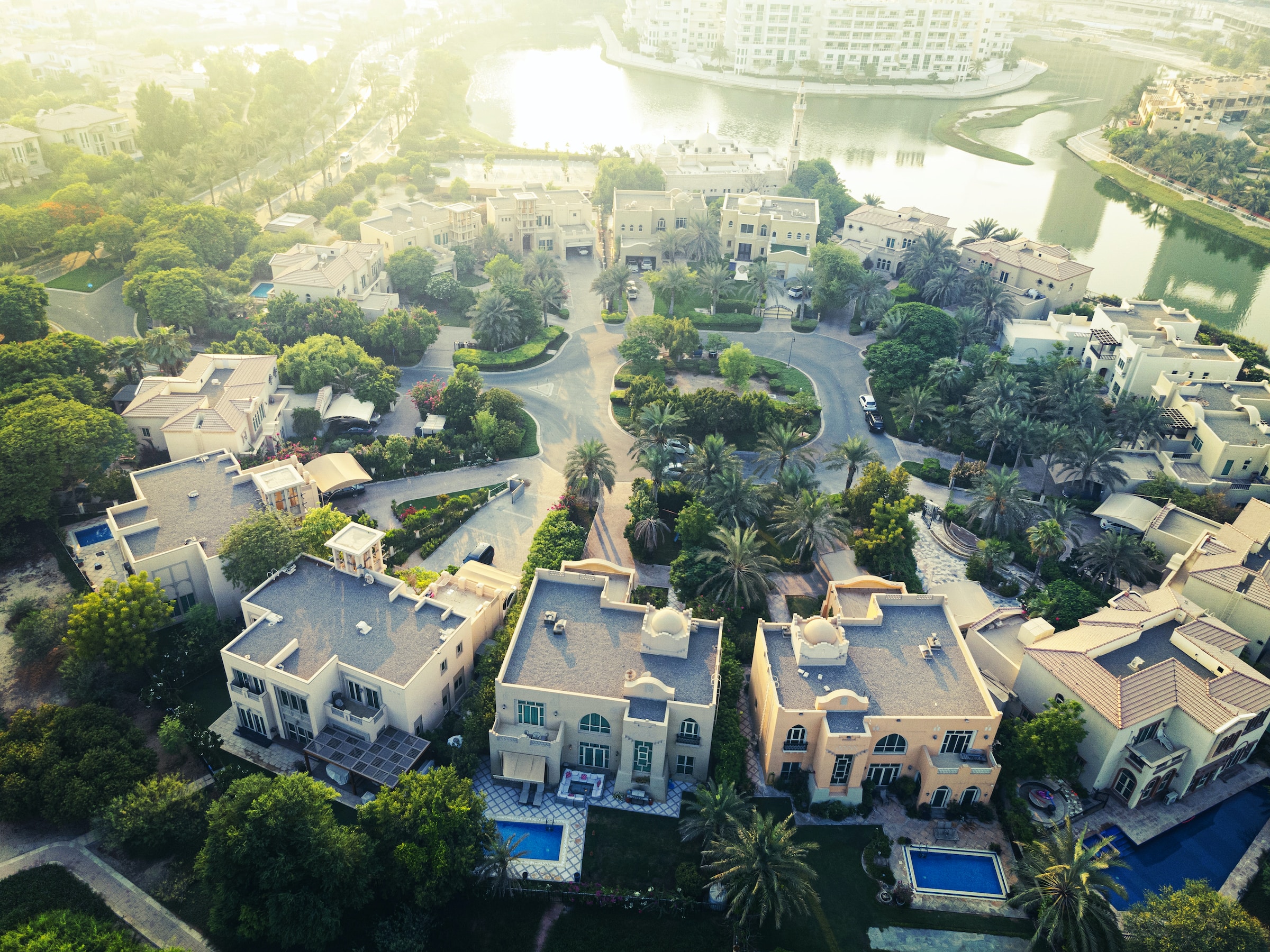Why Sustainable Architecture is the Future of Real Estate in the UAE

Sustainable architecture is no longer a buzzword but a driving force shaping the future of real estate in the UAE. As the world grapples with environmental challenges, the UAE is leading the way in embracing sustainable practices that not only benefit the planet but also offer economic advantages.
In this article, we’ll delve into the growing importance of sustainable architecture in the UAE’s real estate sector, exploring the economic and environmental benefits of green buildings.
We’ll also provide actionable tips for real estate professionals on incorporating sustainability into their projects and operations. Let’s get started.
Sustainable Architecture: A Growing Imperative in the UAE
The UAE has made significant strides in adopting sustainable architecture principles in recent years. The reasons are twofold: environmental consciousness and economic prudence. The harsh desert climate and scarce freshwater resources have pushed the UAE to seek innovative solutions.
Green buildings, designed to minimize their environmental impact, have emerged as a compelling answer. The adoption of sustainable practices in construction and real estate comes with a multitude of benefits.
Economic Benefits
One of the most enticing aspects of sustainable architecture is its potential for long-term cost savings. Green buildings are energy-efficient, utilizing innovative technologies such as solar panels and advanced insulation to reduce energy consumption significantly.
Studies have shown that green buildings can cut energy costs by up to 30%, a substantial incentive for real estate developers and investors.
Furthermore, green buildings often command higher rental and resale values, attracting discerning tenants and buyers looking for environmentally conscious spaces.
Environmental Benefits
The UAE’s commitment to sustainable architecture is driven by its recognition of the environmental challenges posed by rapid urbanization. Green buildings incorporate rainwater harvesting and greywater recycling systems, reducing the strain on water resources in this arid region.
Moreover, these buildings mitigate greenhouse gas emissions and minimize waste through construction materials sourced locally and designed for durability. By 2030, the UAE aims to construct 50% of its new buildings to green standards.
This goal speaks to its dedication to a sustainable future.
Incorporating Sustainability into Real Estate Projects and Operations
The journey begins with a commitment to eco-conscious practices for real estate professionals looking to embrace sustainable architecture in the UAE. Here are some actionable tips to get started:
Renewable Energy Sources
Embrace solar power by integrating photovoltaic panels into building designs. The UAE receives abundant sunlight throughout the year, making solar energy a viable and sustainable choice.
Real estate projects can reduce their dependence on conventional energy sources and lower their carbon footprint by harnessing solar power.
Optimizing Water Usage
Given the UAE’s water scarcity, optimizing water usage is paramount. To reduce consumption, implement water-efficient fixtures, such as low-flow toilets and sensor-activated faucets.
Additionally, consider greywater recycling systems to reuse wastewater for non-potable purposes like irrigation, reducing the strain on freshwater resources.
Reducing waste
Sustainable architecture involves minimizing construction and operational waste. Employ construction techniques that prioritize resource efficiency and reuse materials whenever possible. Implement waste management strategies that include recycling and proper disposal practices.
How Your CRM Features Can Help Your Sustainability Efforts
To ensure that sustainability initiatives in real estate are effective and measurable, integrating Customer Relationship Management (CRM) systems can be invaluable. CRM systems offer features that allow real estate professionals to track their sustainability efforts accurately:
Energy Usage Monitoring
Many CRM systems now include energy monitoring tools that can track a building’s energy consumption in real-time. This data provides insights into energy-efficient practices and highlights areas for improvement.
For instance, CRM systems can be integrated with advanced energy management software that provides detailed analytics on energy consumption. Real estate professionals can monitor energy usage patterns, identify opportunities for optimization, and set energy efficiency targets.
Waste Management Tools
CRM systems can be customized to include waste management modules that enable real-time waste generation and disposal tracking. This helps in identifying patterns and optimizing waste reduction strategies.
For example, CRM systems can integrate with waste tracking software that records the type and quantity of waste generated during construction and operations.
This data can be used to identify areas where waste reduction measures can be implemented and track progress toward waste reduction goals.
Sustainability Reporting Dashboards
CRM systems can generate sustainability reports that compile data on energy usage, water consumption, waste generation, and other key sustainability metrics. These reports can be used for internal assessments and to showcase sustainability efforts to stakeholders.
For instance, CRM systems can provide customizable sustainability dashboards that display real-time data and key performance indicators related to sustainability initiatives.
Real estate professionals can use these dashboards to monitor progress, communicate results to stakeholders, and make data-driven decisions to improve sustainability efforts further.
Conclusion
In the UAE, the future of real estate lies in sustainable architecture. The economic benefits of reduced energy costs, increased property values, and the environmental advantages of water conservation and reduced emissions make sustainable buildings attractive.
Real estate professionals can play a pivotal role in this green transformation by incorporating renewable energy sources, optimizing water usage, and reducing waste.
CRM systems with sustainability tracking features further enhance these efforts, allowing for precise monitoring and reporting of sustainability initiatives.
As the UAE paves the way for sustainable architecture, real estate professionals can lead the charge toward a more eco-conscious and prosperous future.
Want to supercharge your sales and marketing team for your real estate organization? Talk to us. Book a FREE demo below.
Curious how digital ecosystems can help improve your business?
Check out how digital ecosystems can boost your company performance by getting started here.
Book a Demo